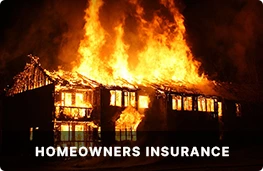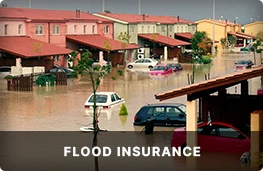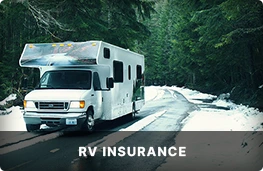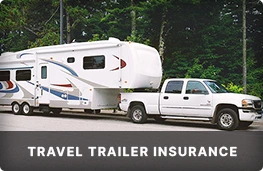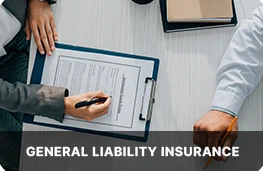What To Do Before, During, and After a Flood
Even if you feel you live in a community with a low risk of flooding, remember that anywhere it rains, it can flood. Just because you haven't experienced a flood in the past, doesn't mean you won't in the future. Flood risk isn't just based on history; it's also based on a number of factors including rainfall , topography, flood-control measures, river-flow and tidal-surge data, and changes due to new construction and development.
Before a Flood
To prepare for a flood, you should:
Build an emergency kit and make a family communications plan.
Avoid building in a floodplain unless you elevate and reinforce your home.
Elevate the furnace, water heater and electric panel in your home if you live in an area that has a high flood risk.
Consider installing "check valves" to prevent flood water from backing up into the drains of your home.
If feasible, construct barriers to stop floodwater from entering the building and seal walls in basements with waterproofing compounds.
During a Flood
If a flood is likely in your area, you should:
Listen to the radio or television for information.
Be aware that flash flooding can occur. If there is any possibility of a flash flood, move immediately to higher ground. Do not wait for instructions to move.
Be aware of stream, drainage channels, canyons and other areas known to flood suddenly. Flash floods can occur in these areas with or without typical warnings such as rain clouds or heavy rain.
If you must prepare to evacuate, you should do the following:
Secure your home. If you have time, bring in outdoor furniture. Move essential items to an upper floor.
Turn off utilities at the main switches or valves if instructed to do so. Disconnect electrical appliances. Do not touch electrical equipment if you are wet or standing in water.
After a Flood
Your home has been flooded. Although floodwaters may be down in some areas, many dangers still exist. Here are some things to remember in the days ahead:
Avoid moving water.
Stay away from damaged areas unless your assistance has been specifically requested by police, fire, or relief organization.
Emergency workers will be assisting people in flooded areas. You can help them by staying off the roads and out of the way.
Play it safe. Additional flooding or flash floods can occur. Listen for local warnings and information. If your car stalls in rapidly rising waters, get out immediately and climb to higher ground.
Return home only when authorities indicate it is safe.
Roads may still be closed because they have been damaged or are covered by water. Barricades have been placed for your protection. If you come upon a barricade or a flooded road, go another way.
If you must walk or drive in areas that have been flooded.
Stay on firm ground. Moving water only 6 inches deep can sweep you off your feet. Standing water may be electrically charged from underground or downed power lines.
Flooding may have caused familiar places to change. Floodwaters often erode roads and walkways. Flood debris may hide animals and broken bottles, and it's also slippery. Avoid walking or driving through it.
Be aware of areas where floodwaters have receded. Roads may have weakened and could collapse under the weight of a car.
Stay out of any building if it is surrounded by floodwaters.
Use extreme caution when entering buildings; there may be hidden damage, particularly in foundations.
Staying Healthy
A flood can cause physical hazards and emotional stress. You need to look after yourself and your family as you focus on cleanup and repair.
Avoid floodwaters; water may be contaminated by oil, gasoline or raw sewage.
Service damaged septic tanks, cesspools, pits and leaching systems as soon as possible. Damaged sewer systems are serious health hazards.
Listen for news reports to learn whether the community's water supply is safe to drink.
Clean and disinfect everything that got wet. Mudleft from floodwaters can contain sewage and chemicals.
Rest often and eat well.
Keep a manageable schedule. Make a list and do jobs one at a time.
Discuss your concerns with others and seek help. Contact Red Cross for information on emotional support available in your area.
Cleaning up & Repairing Your Home
Turn off the electricity at the main breaker or fuse box, even if the power is off in your community. That way, you can decide when your home is dry enough to turn it back on.
Get a copy of the book Repairing Your Flooded Home which is available free from the American Red Cross or your state or local emergency manager. It will tell you:
How to enter your home safely.
How to protect your home and belongings from further damage.
How to record damage to support insurance claims and requests for assistance.
How to check for gas or water leaks and how to have service restored.
How to clean up appliances, furniture, floors and other belongs.
The Red Cross can provide you with a cleanup kit: mop, broom, bucket, and cleaning supplies.
Contact your insurance agent to discuss claims.
Listen to your radio for information on assistance that may be provided by the state or federal government or other organizations.
If you hire cleanup or repair contractors, check references and be sure they are qualified to do the job. Be wary of people who drive through neighborhoods offering help in cleaning up or repairing your home.
Before a Flood
To prepare for a flood, you should:
Build an emergency kit and make a family communications plan.
Avoid building in a floodplain unless you elevate and reinforce your home.
Elevate the furnace, water heater and electric panel in your home if you live in an area that has a high flood risk.
Consider installing "check valves" to prevent flood water from backing up into the drains of your home.
If feasible, construct barriers to stop floodwater from entering the building and seal walls in basements with waterproofing compounds.
During a Flood
If a flood is likely in your area, you should:
Listen to the radio or television for information.
Be aware that flash flooding can occur. If there is any possibility of a flash flood, move immediately to higher ground. Do not wait for instructions to move.
Be aware of stream, drainage channels, canyons and other areas known to flood suddenly. Flash floods can occur in these areas with or without typical warnings such as rain clouds or heavy rain.
If you must prepare to evacuate, you should do the following:
Secure your home. If you have time, bring in outdoor furniture. Move essential items to an upper floor.
Turn off utilities at the main switches or valves if instructed to do so. Disconnect electrical appliances. Do not touch electrical equipment if you are wet or standing in water.
After a Flood
Your home has been flooded. Although floodwaters may be down in some areas, many dangers still exist. Here are some things to remember in the days ahead:
Avoid moving water.
Stay away from damaged areas unless your assistance has been specifically requested by police, fire, or relief organization.
Emergency workers will be assisting people in flooded areas. You can help them by staying off the roads and out of the way.
Play it safe. Additional flooding or flash floods can occur. Listen for local warnings and information. If your car stalls in rapidly rising waters, get out immediately and climb to higher ground.
Return home only when authorities indicate it is safe.
Roads may still be closed because they have been damaged or are covered by water. Barricades have been placed for your protection. If you come upon a barricade or a flooded road, go another way.
If you must walk or drive in areas that have been flooded.
Stay on firm ground. Moving water only 6 inches deep can sweep you off your feet. Standing water may be electrically charged from underground or downed power lines.
Flooding may have caused familiar places to change. Floodwaters often erode roads and walkways. Flood debris may hide animals and broken bottles, and it's also slippery. Avoid walking or driving through it.
Be aware of areas where floodwaters have receded. Roads may have weakened and could collapse under the weight of a car.
Stay out of any building if it is surrounded by floodwaters.
Use extreme caution when entering buildings; there may be hidden damage, particularly in foundations.
Staying Healthy
A flood can cause physical hazards and emotional stress. You need to look after yourself and your family as you focus on cleanup and repair.
Avoid floodwaters; water may be contaminated by oil, gasoline or raw sewage.
Service damaged septic tanks, cesspools, pits and leaching systems as soon as possible. Damaged sewer systems are serious health hazards.
Listen for news reports to learn whether the community's water supply is safe to drink.
Clean and disinfect everything that got wet. Mudleft from floodwaters can contain sewage and chemicals.
Rest often and eat well.
Keep a manageable schedule. Make a list and do jobs one at a time.
Discuss your concerns with others and seek help. Contact Red Cross for information on emotional support available in your area.
Cleaning up & Repairing Your Home
Turn off the electricity at the main breaker or fuse box, even if the power is off in your community. That way, you can decide when your home is dry enough to turn it back on.
Get a copy of the book Repairing Your Flooded Home which is available free from the American Red Cross or your state or local emergency manager. It will tell you:
How to enter your home safely.
How to protect your home and belongings from further damage.
How to record damage to support insurance claims and requests for assistance.
How to check for gas or water leaks and how to have service restored.
How to clean up appliances, furniture, floors and other belongs.
The Red Cross can provide you with a cleanup kit: mop, broom, bucket, and cleaning supplies.
Contact your insurance agent to discuss claims.
Listen to your radio for information on assistance that may be provided by the state or federal government or other organizations.
If you hire cleanup or repair contractors, check references and be sure they are qualified to do the job. Be wary of people who drive through neighborhoods offering help in cleaning up or repairing your home.
Comments
No comments made yet. Be the first to submit a comment
By accepting you will be accessing a service provided by a third-party external to https://www.affordablequalityinsurance.net/

